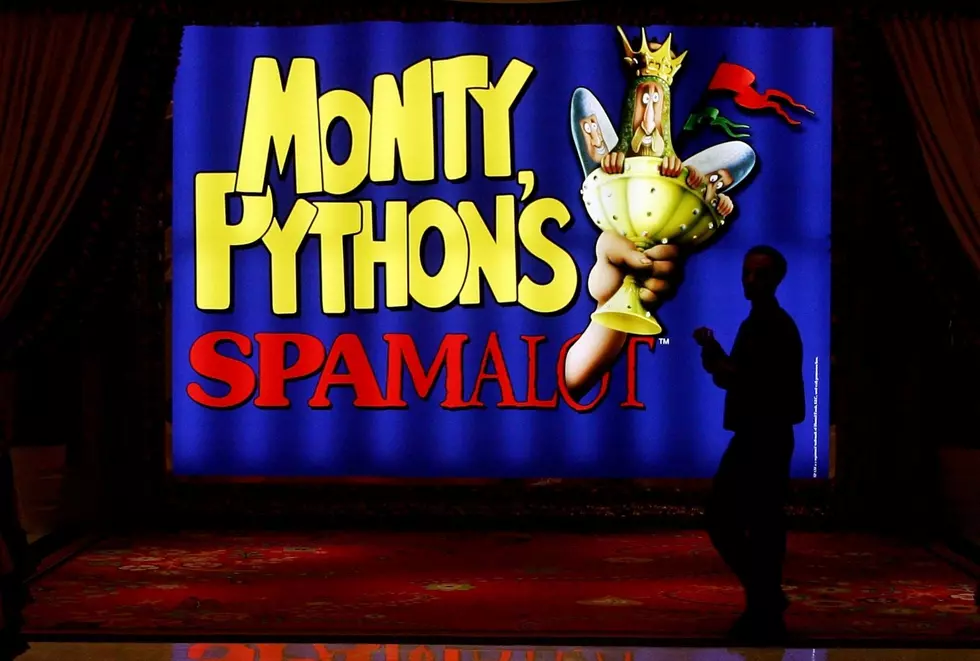
40 Years Ago: ‘Monty Python’s Life of Brian’ Weathers Protests
There are a few sacred cows in cinema, topics that you either can’t talk about or that you ought to expect to get pushback on. One of those, perhaps the biggest of all, would be organized religion. For some artists, it’s enough to imagine protests to make you want to steer far clear of ever discussing religion; others see the topic and feel like they can’t do anything but make art about it. The Monty Python comedy troupe fell into the latter camp with their third feature film, released in August of 1979: Monty Python’s Life of Brian has lived a long post-release life, considered one of the greatest comedies of all time. But when it was released, it was met by worldwide protests due to its daring content.
The basic setup of Life of Brian is both hilarious and an easy way to court controversy: as opposed to one of many cinematic versions of the story of Jesus Christ, the film talks about the little baby born in the manger right next door, from birth to his own crucifixion after a failed attempt at being a messianic figure in his own right. As in the troupe’s previous films, And Now For Something Completely Different and Monty Python and the Holy Grail, almost every character in the film is portrayed by the group’s six members: Graham Chapman, John Cleese, Terry Gilliam, Eric Idle, Terry Jones and Michael Palin, who co-wrote the script together.
That script is nearly what sunk Life of Brian before it even got off the ground. As detailed in The Guardian in 2019, Lord Bernard Delfont, the chairman of the film studio EMI, which had originally greenlit Life of Brian into production, decided that he would read the script for the new comedy. That ended up being a bad idea for the Pythons, since Lord Delfont hated what he read and yanked the film from their production slate. So, in spite of being big-name stars, the Monty Python members needed to pull together a few million pounds in a hurry.
Idle “had the idea of phoning George Harrison," according to the article, because the ex-Beatle was the richest person he knew. By doing so, Harrison was not only inspired to help out: he created a film studio of his own, HandMade Films, specifically designed to fund Life of Brian in full. HandMade Films went on to fund and produce British films like Time Bandits, Withnail & I, and Lock, Stock, and Two Smoking Barrels. While the Pythons were able to make Life of Brian the way they wanted to thanks to Harrison’s generosity, the reaction of the EMI chairman was a hint to how the film would be treated eventually.
Watch the Life of Brian Trailer
Filming for Life of Brian, at least, went smoothly. Another article in The Guardian, from 2003, mentioned how the 41-day shoot (directed by Jones; he and Gilliam had co-directed Holy Grail, but he took over sole duties on this one) was the height of efficiency. Cleese said later, “God smiles on some projects and he smiled on that one.” Of course, the ways in which God smiled on the project sometimes required quick thinking, as the article describes. One of the most memorable shots in the film, at sunset as people head to the Sermon on the Mount, happened basically by accident: many of the extras were leaving the set en masse, despite Jones trying to maintain filming, and Idle convinced him to shoot the extras walking away as if it was planned. That shot made it into the final product, with audiences none the wiser.
Another moment that could’ve gone south, but managed to work within the confines of the film, featured Chapman in his birthday suit. Playing the title character, Chapman at one point reveals all, inadvertently to hundreds of onlookers. The film’s production, in Tunisia, used a lot of Muslim extras, which posed a problem here, since Muslim women were, by their religious tenets, not supposed to see a random nude man, as they would here. “When I flung open the shutters," Chapman remembered, "half the crowd ran away screaming.” Though the film eventually got the shot as expected, it was yet another case of foreshadowing of what could happen with the film’s release.
Though the Pythons were a decidedly British group -- Gilliam was the sole American-born member of the Flying Circus -- Life of Brian made its way to the U.S. first, distributed by Warner Bros. Pictures and Orion. That wasn’t just decided to capitalize on the group’s later success in the States thanks to repeats of their TV show and Holy Grail’s box office success. In fact, there were legitimate concerns that the perceived blasphemous nature of the new film could literally get the Pythons jailed in the U.K.
Two years prior, as The Guardian explains, a British woman won a blasphemy libel case against a publication called Gay News for publishing poetry detailing homoeroticism in the era of Jesus Christ. (It did not help matters that Chapman, who was himself homosexual, was one of the people who helped launch Gay News.) Because blasphemous libel was no longer a fantasy, and had legal backing in Britain, Life of Brian would make waves in the U.S. when it opened on Aug. 17, 1979. The film wound up being the highest-grossing British export in American cinemas that year, a notable feat considering that it opened opposite, of all things, Francis Ford Coppola’s Apocalypse Now.
But it wasn’t without protest in the U.S. The weekend of its release, there was a response from Rabbi Abraham Hecht of the Rabbinical Alliance of America. As quoted in The Guardian, his response was “Never have we come across such a foul, disgusting, blasphemous film before. …[Brian] was produced in hell.” Soon after, members of the Protestant and Catholic Churches chimed in, dubbing the film “a disgraceful assault on religious sensitivity” and the latter group rating it as “Condemned."
Of course, all the complaints and protests did was a version of what’s now known as the Streisand Law, after Barbra Streisand complained about photos of the beachside view of her Malibu house violating her privacy, which only served to make more people aware of the photos and her house. The protesting of Life of Brian may have been designed to quash the film’s popularity, but the opposite wound up being true. The film was originally intended to open on just 200 screens in the U.S., but got triple that number based on people’s interest levels, goosed up by the criticisms.
In Britain, the protests were just as powerful but they played out somewhat differently. One group, the Nationwide Festival of Light, was laser-focused in trying to bring the anarchic comedy down. They failed in doing so, even after trying to get the British Board of Film Classification (the U.K.'s version of the Motion Picture Association of America) to refuse the film a rating. When that, and the demonstrations outside of theaters failed, Life of Brian began its ascent to becoming one of the highest-grossing films of the year in Great Britain.
The film’s humor has, over time, aged like a fine wine, with the idea of protests concurrently feeling even more foolish. Its anthem, “Always Look on the Bright Side of Life," sung by Idle in the final moments as Brian is forced to accept his grim fate on the cross, is so beloved that it became one of the major musical numbers in the Monty Python and the Holy Grail-inspired musical Spamalot decades later. Life of Brian has also gotten the re-release treatment, first to cheekily capitalize on the success of Mel Gibson’s The Passion of the Christ.
Eric Idle Performs "Always Look on the Bright Side of Life" in Life of Brian
The Monty Python comedy troupe often comes together for reunions now, or in brief performances as they did at the O2 Arena in Britain in 2014. But their high point, of both critical and commercial success, came in the late '70s and early '80s as they took on some of the biggest taboo topics, from religion to death and life themselves. Life of Brian may have come from a different era, with its scandalous and gleefully offensive humor targeting Jews and Roman Catholics alike. But it pushed past protests, concerns and criticisms. Brian was a very naughty boy indeed, even if he wasn’t a messiah, but his story survived the test of time.
25 Movie Sequels That Shouldn't Have Been Made
More From Sasquatch 92.1 FM






